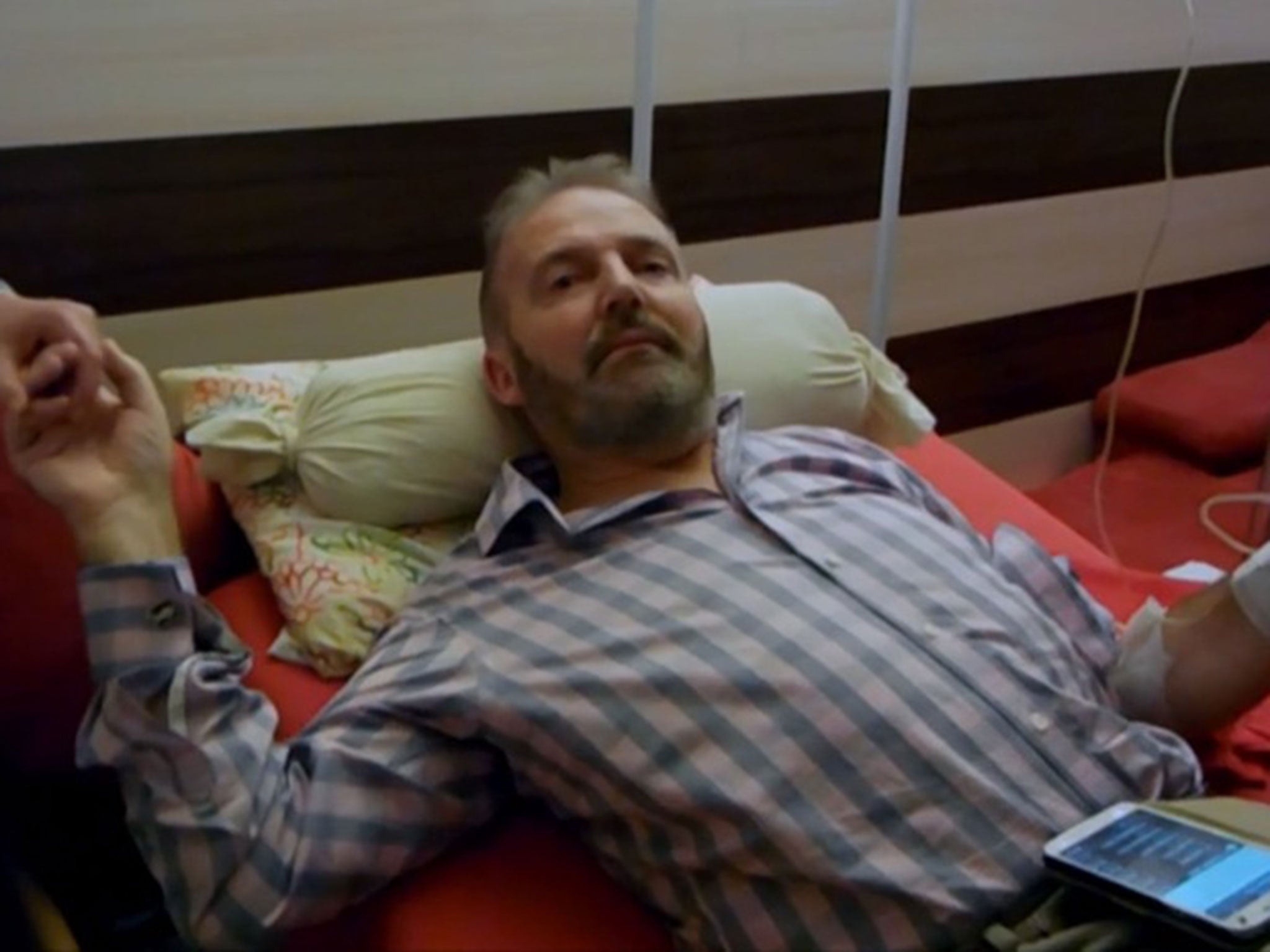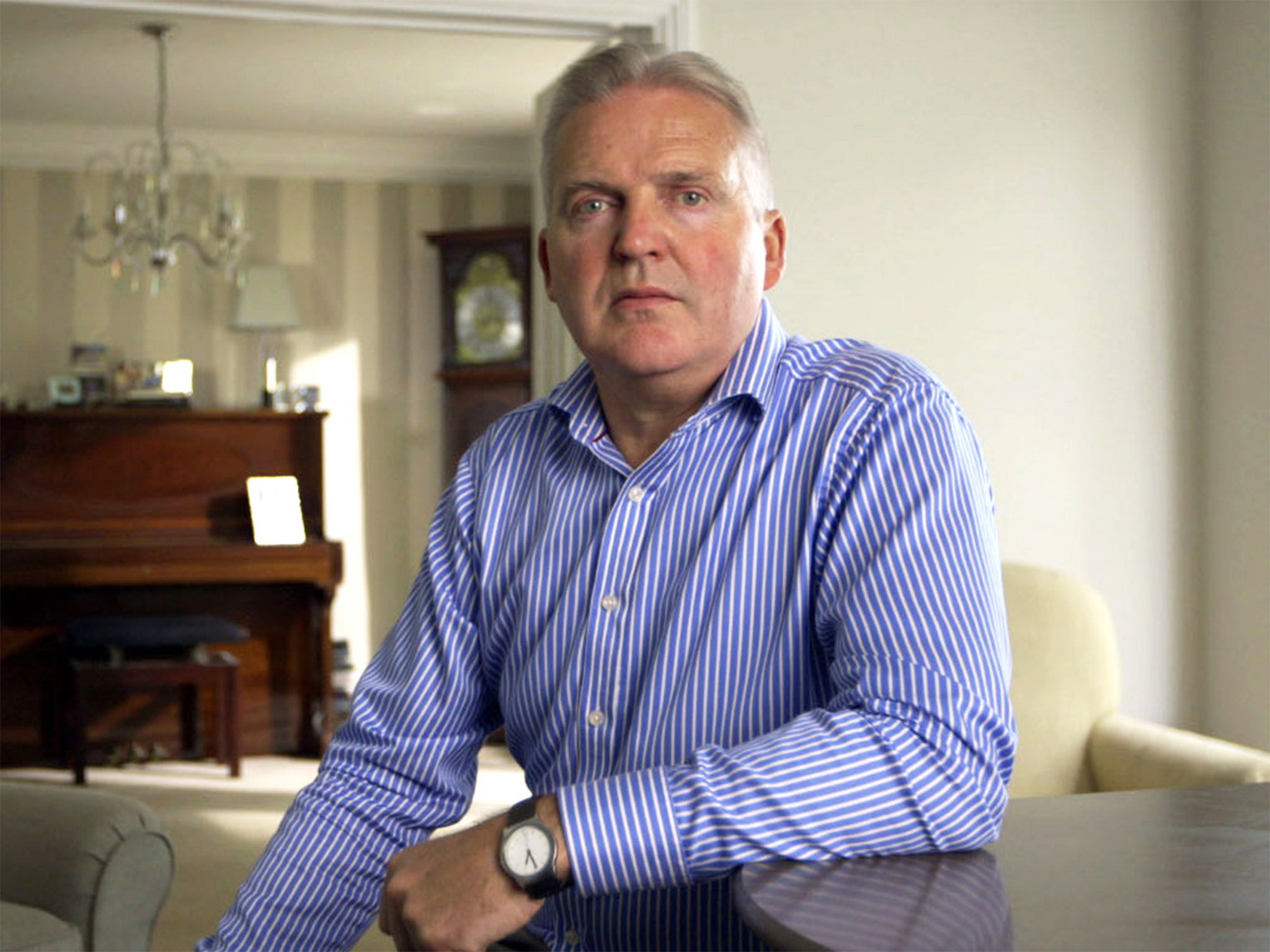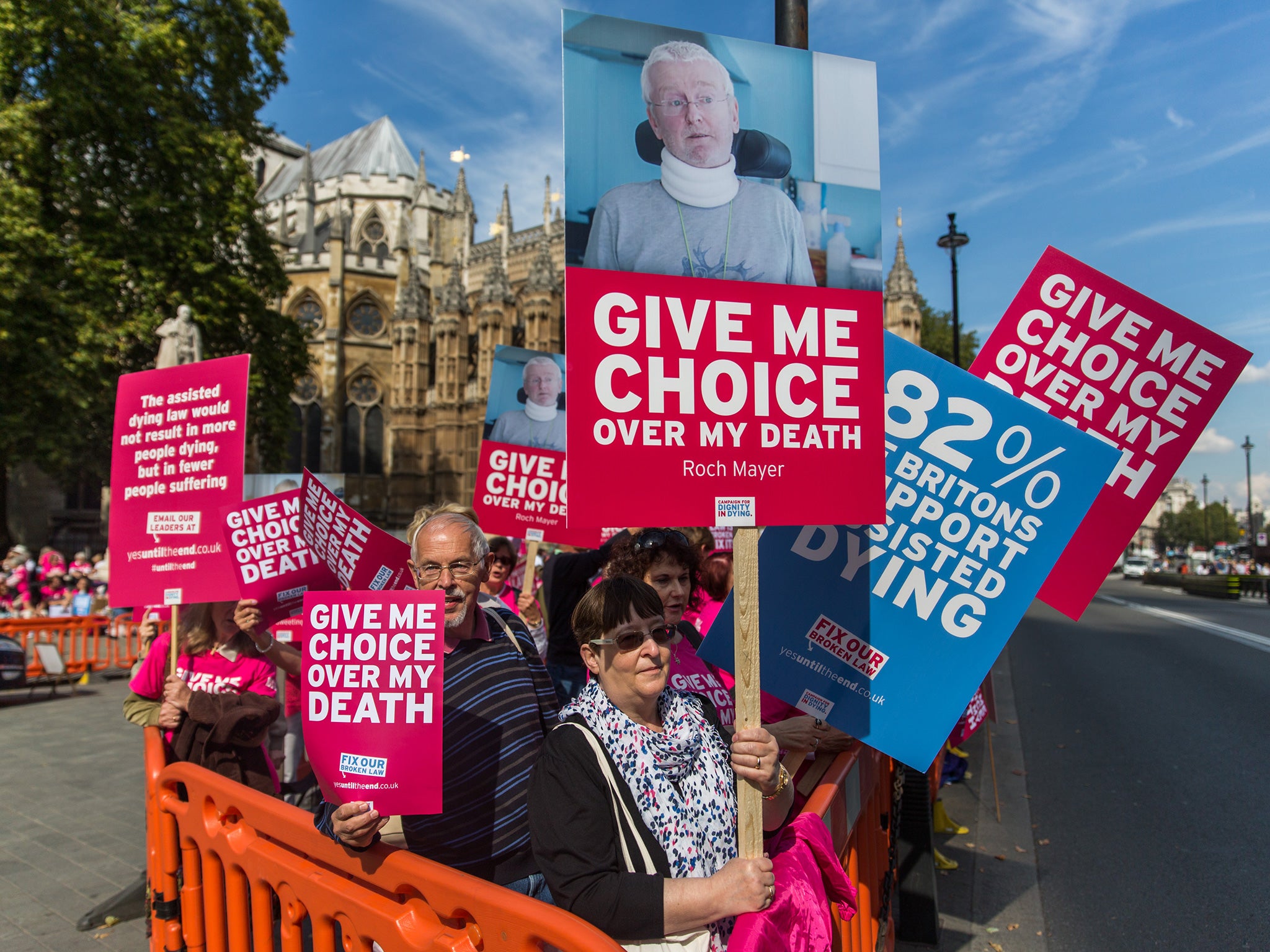BBC 'makes last-minute changes' to controversial documentary on man ending his life in Swiss clinic
Simon Binner, 57, travelled to an assisted suicide clinic in Switzerland after being diagnosed with Motor Neurone disease

Your support helps us to tell the story
From reproductive rights to climate change to Big Tech, The Independent is on the ground when the story is developing. Whether it's investigating the financials of Elon Musk's pro-Trump PAC or producing our latest documentary, 'The A Word', which shines a light on the American women fighting for reproductive rights, we know how important it is to parse out the facts from the messaging.
At such a critical moment in US history, we need reporters on the ground. Your donation allows us to keep sending journalists to speak to both sides of the story.
The Independent is trusted by Americans across the entire political spectrum. And unlike many other quality news outlets, we choose not to lock Americans out of our reporting and analysis with paywalls. We believe quality journalism should be available to everyone, paid for by those who can afford it.
Your support makes all the difference.A controversial documentary following the journey of a man with Motor Neurone disease who ended his life at a Swiss clinic was changed at the last-minute by the BBC, it has been claimed.
How to Die: Simon’s Choice aired on BBC2 at 9pm yesterday.
It told the story of 57-year-old Simon Binner’s battle with the terminal illness and his death on 19 October last year at an Eternal Spirit clinic in Basel.
While assisted dying is not illegal in Switzerland, helping someone to end their life in Britain is a criminal offence, punishable by up to 14 years in prison.
In the documentary, Mr Binner - a fun-loving and sociable self-made businessman who had attended Cambridge University - said he made up his mind to end his life at a clinic in the car on the way home after his diagnosis last summer.
As his condition deteriorated, he lost the ability to speak, dress himself, or shower, and had to use a wheelchair as his walking failed.
In a recorded statement read by a voice actor, Mr Binner explained: “I'm an independent type of guy and the end game of Motor Neurone disease is not to my taste.
“Like a used car I'm worn out and it's no longer worth investing in the cost or repairs.”
Although his wife Debbie did not initially agree with his decision to travel to Switzerland, she said she saw how desperate Mr Binner was to die after he attempted to take his own life at the family home just weeks before his death.
Viewers saw Mr Binner travel to Basel with his wife and five others, where he enjoyed a final evening meal with the group before they watched him die the next morning at the clinic.
But the BBC reportedly removed scenes from an earlier version of the documentary at the last-minute after being contacted by the Samaritans charity, which was concerned that the corporation would be going against broadcasting guidelines prohibiting the communication of detailed guidance about suicide methods.
Originally, the programme reportedly planned to show a member of staff at the Eternal Spirit clinic speaking about how the anaesthetic Mr Binner used to end his life would affect his body, as well as footage of Mr Binner’s body after his death.
Neither were shown.

In the moving scenes aired, Mr Binner was seen lying on a bed, ready to release the anaesthetic, after playing one last pre-recorded message to his wife.
The exact moment of his death was not shown.
In his last message, he told his wife: “Hi Debbie, it’s Simon here. I’ve loved you very, very much Debbie.
I haven’t deserved you or Hannah or Zoe. Such loving and caring young ladies, and I’ve been such a grump gruffalo for much of the time.
“But I really love you Debbie. We’ve had such a fun and laughter-filled marriage, we were really blessed to have found one another.
“The one blessing of a slow decline is that we’ve had time to speak about things over 10 long months, not like losing me in a car smash.
“We’ve really said everything that needs to be said. You’ve been a truly fantastic wife to me Debbie and I know that you loved me and I’ve loved you.
“Anyway, time and tide wait for no man, I love you very much Debbie. Goodbye.”
MPs rejected a bill to make assisted suicide legal for people with fewer than six months to live when they voted on the issue for the first time in nearly 20 years in the House of Commons last September.
Speaking to the Daily Mail yesterday, Mrs Binner said the documentary was “beautiful”.
“We have done it to show the complexities of the argument. It’s not a black and white issue,” she said.
“People get these illnesses. It can happen to anyone. It’s so important to have a debate.
“I’m not telling anybody what to do we just wanted to show the complex issues and use our experience to help move on the debate.”

Mr Binner’s story first came to light last year, when he announced on professional networking site LinkedIn that he had died.
A message on a section of his profile headed “patient”, read: “I died in Switzerland with Eternal Spirit on 19 Oct 2015 and my funeral was on 13 Nov 2015.
“I don’t recommend MND! Better to have one massive fatal stroke or be killed instantly by a drunk driver! There is nothing I can say that’s positive about MND.”
A BBC spokesman told The Independent: “This is a sensitive observational documentary following one family’s experience of assisted death, which explores some of the complex questions at the heart of this deeply divisive issue.
“The film does not serve to support either argument or intend to wholly represent the debate.”
Join our commenting forum
Join thought-provoking conversations, follow other Independent readers and see their replies
Comments